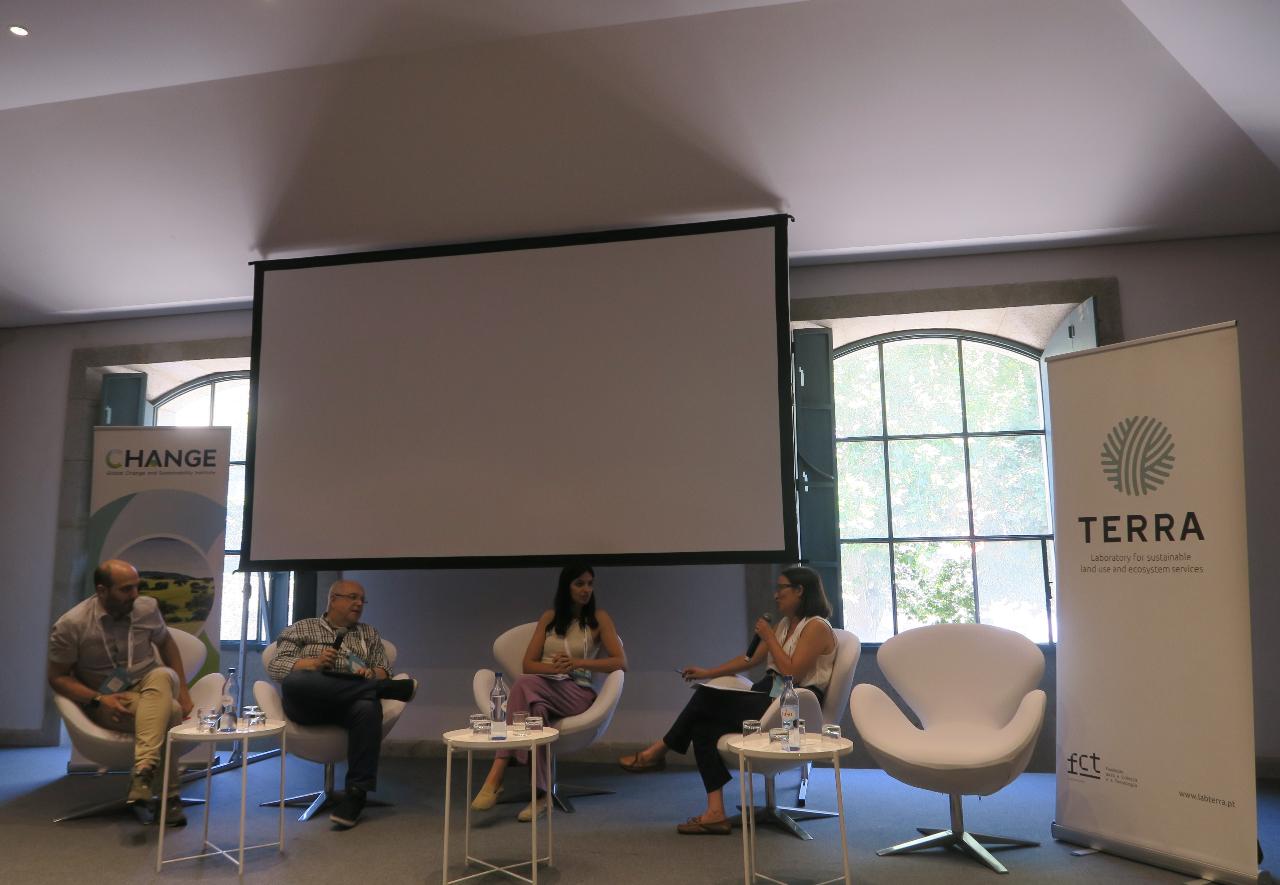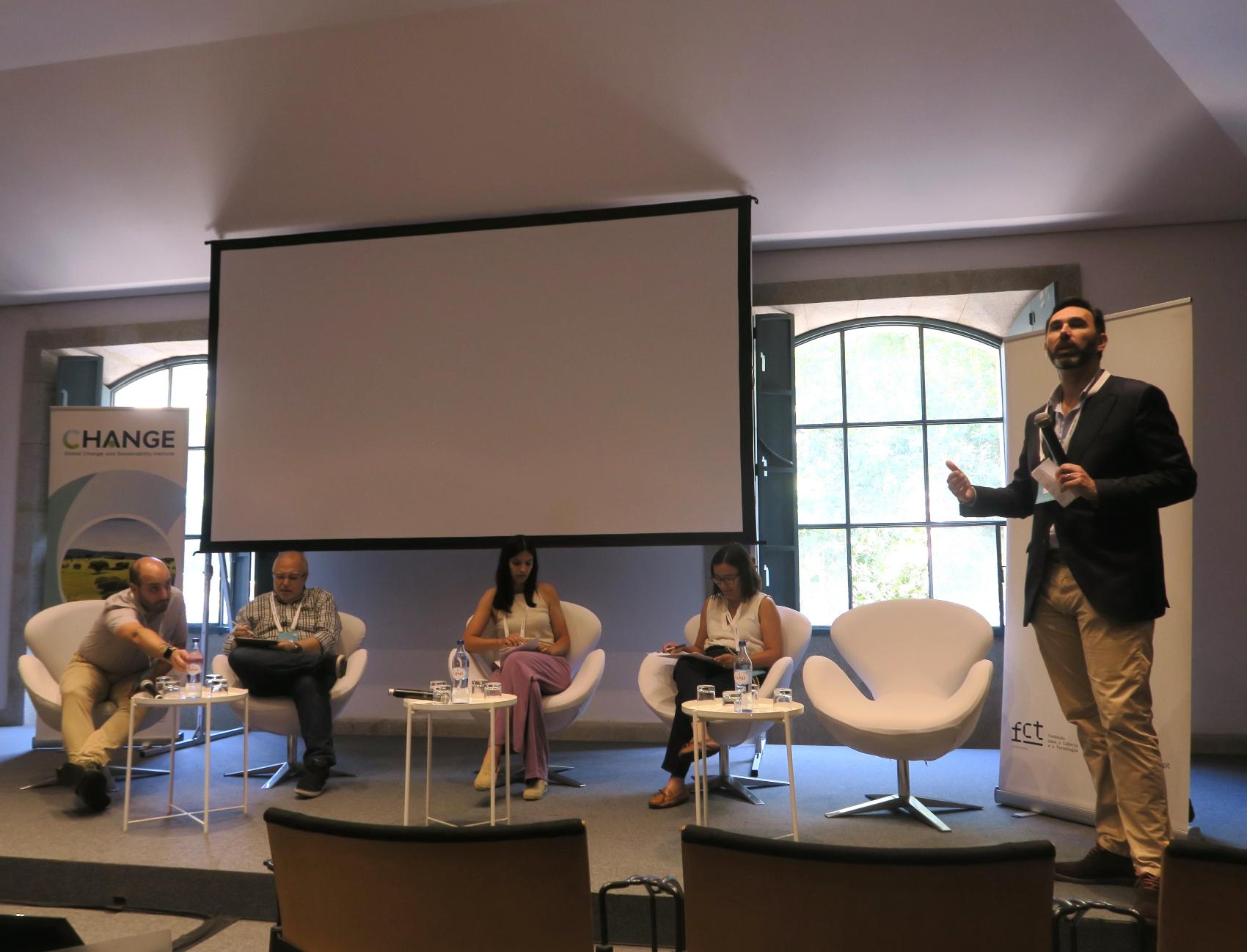
The challenges of accessing data to better understand soils in Portugal and the need for an agreement on the indicators to be collected for this purpose were some of the main issues discussed at the round table "Soil Health: The foundation for ecosystems, climate regulation, and food security." The thematic session, jointly organized by CHANGE and TERRA at Encontro Ciência 2024, which took place on July 5th at Alfândega do Porto.
The session featured an introduction by Paulo Branco, from TERRA, and a round table moderated by Susana Filipe, from MED & CHANGE, with the participation of Carlos Guerra, from the University of Coimbra, Paula Guedes, from CENSE & CHANGE, and José Paulo Sousa, from CFE, University of Coimbra and TERRA.
"There is a lot of information that needs to be gathered to build a database on the state of the soil and its use," emphasized Paula Guedes, highlighting the importance of this tool for developing strategies to mitigate soil degradation. Carlos Guerra from the University of Coimbra stressed that there is a lot of information, but it is very regionalized. "We lack synthesis capacity, and we do not have current data. Having a lot of information does not mean we have data," he stated.
In addition to the need to know more about soils in Portugal, the participants also emphasized the need to find a common way to collect this data. "Chemical, physical, and geological indicators should be implemented. All indicators are possible and should be on the table, chosen case by case, depending mainly on the scale," stated José Paulo Sousa.
"We are all trying to preserve something that is very important, but it does not belong to us, it belongs to thousands of people," said Carlos Guerra. "About 40,000 samples are collected annually in Portugal, but they are private, we do not have access to these data," he concluded, pointing out one of the main challenges in obtaining knowledge about soils in Portugal, compared to water or air, which are public.
The importance of obtaining data on contaminants in agricultural soils, the soil-water nexus, the need for more intercommunication between agencies to increase information sharing and linkage, as well as the role of Living Laboratories, were also discussed.
